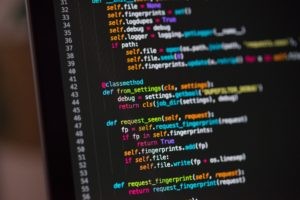3 Big Reasons Python is Useful in Cybersecurity
For all those familiar with the fight against cybersecurity, you will know that programming has become almost compulsory for making new tools, writing scripts, and protecting systems from external attacks. Python has been one of the most popular programmes in this respect for a long time. Created by Guido van Rossum in 1985, this is a high-level language that is available under the GNU General Public Licence. With the ability to be used for most domains in 2023, it has a number of built-in features to help developers write secure code, and can be used for a variety of cybersecurity-related tasks – including malware analysis, server access, networking scanning, and much more.
With cyberattacks growing year on year, it has never been more important to simplify cybersecurity processes to ensure that everyone is protected. Just a few months ago, the state constitution of California announced what is known as the “delete act”, which allows people to quickly and easily delete all of their data from Californian licensed brokers. This was a problem that many people were unaware of, and would only work to counteract with a simplified and efficient method – which is part of the reason why companies like Incogni have also surged in the data protection industry over the last few years.
Other active cybersecurity challenges, such as emerging 5G applications, ransomware evolutions and deepfake technology, all require fast, manageable and simplified solutions for average individuals and businesses. And this is where Python, as a basic cybersecurity programme, really excels.
A Simplified Script Development
From the very beginning, Python has been intentionally designed to be as simple and straightforward as possible. This doesn’t require vast and complicated code, it is a lightweight programming language that has a simple, easy-to-learn structure – unlike some of its other counterparts, such as Java or C.
Being so simple, script creation and development becomes more seamless, which is a crucial point when considering the ever changing world of cybersecurity, and how hackers can find new ways to bypass softwares and integrate themselves into networks. The simple code also makes debugging easier to implement. With increased readability, it’s possible for even beginner programmers to troubleshoot and debug their systems.
Python Is Open Source
Such an efficient, lightweight programme, also needs to be widely available for all programmers. This is why Python was developed to be open-source, meaning it is free for everyone to use and build upon. Because of this, the language is constantly supported by a community, and moved forward year-on-year to keep up with changing cybersecurity demands.
The open-source software has also generated a big community, rather than a community that is made up in the security sector. With an extensive community, there is more documentation, and more chance to recognise risks, vulnerabilities, and threats that should be targeted and safeguarded.
Fast, Fast, Fast
One of the reasons why Python has revolutionised the IT industry is because it can be used to develop scripts and programmes in real time. Remember, the cybersecurity world is ever changing. When new security tactics come into play, cyberattackers quickly work out new ways to counteract them and infiltrate. In many ways, it is an ongoing race, with one side frantically attempting to overtake the other until they are out of sight.
Python as a cybersecurity programme gives people a way to learn quickly and apply quickly, which is important both in the prevention of attacks and the recovery process after a data breach has taken place. This is a third reason why Python is so useful for cybersecurity, but really, it adds to one big whole. Simplicity, readability, and accessibility. This is what might make the difference when it comes to people and businesses uniting to stop the threat of cybercriminals completely.

